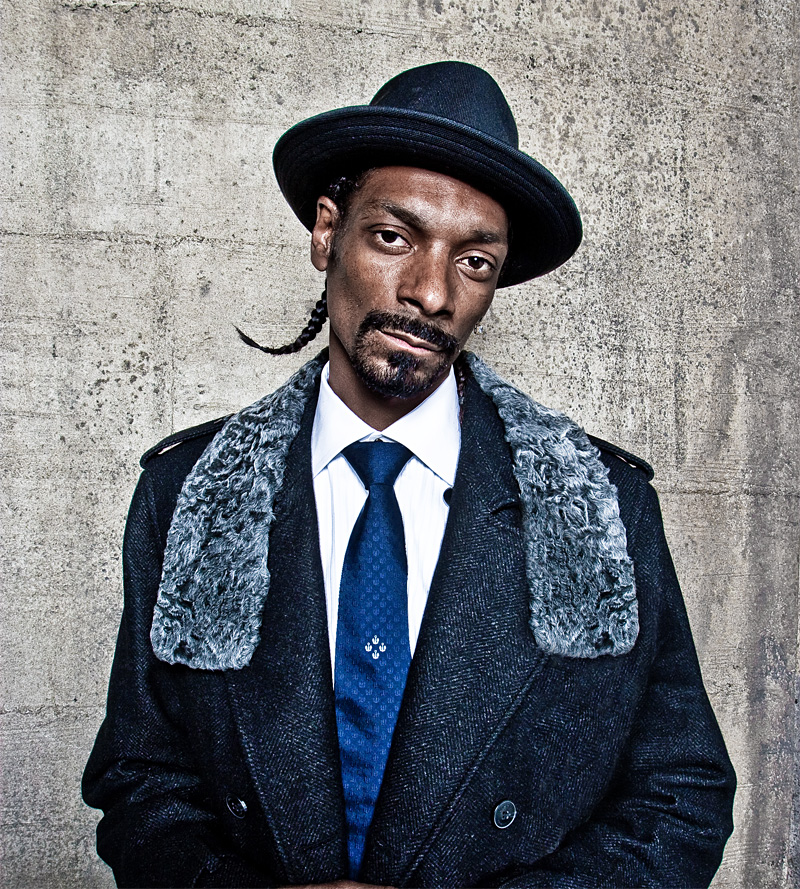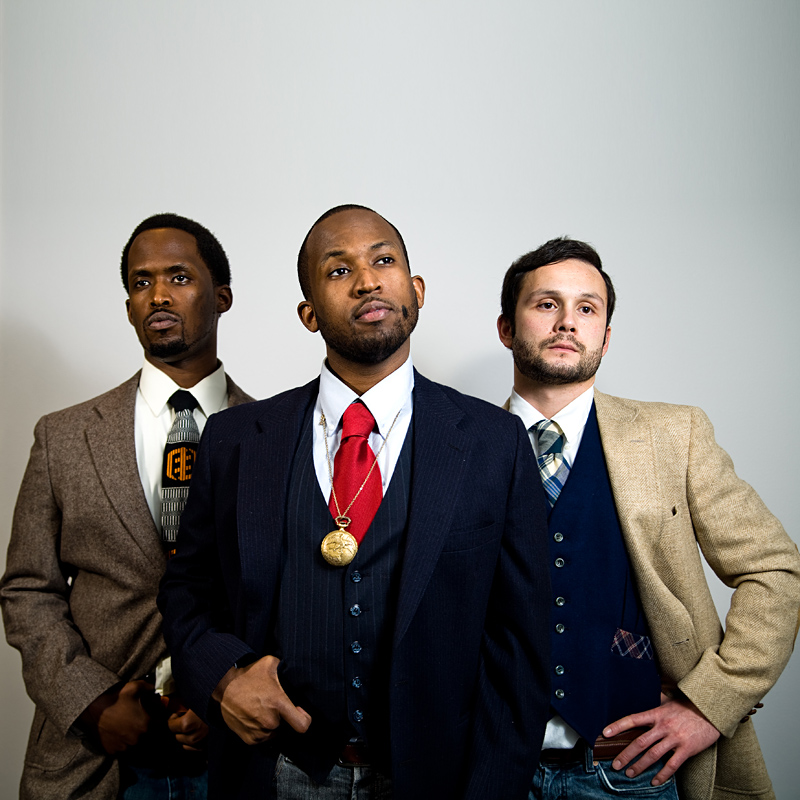Snoop Dogg and Ice Cube, together on their “How the West Was One” tour, have long been hailed as pioneers of the West Coast rap movement that emerged in the late ’80s and early ’90s. But from the beginning, their undeniable commercial success, social impact, and musical influence has been plagued with complaints and campaigns targeting their work’s often violent and misogynistic nature.
Those rappers set the stage for local rhymes like Mad Rad’s “Sexy Bicycle” or Dyme Def’s lyrically and sonically impressive but self-described “tastefully misogynistic” Sex Tape. We asked four of our favorite local hip-hop acts about the influence and cultural importance—positive and negative—of these pioneers of West Coast gangsta rap, and how we should consider their sexually charged lyrics.
Gotta stay strong, the streets is pushy/I got two weaknesses: beats and pussy
—Fresh Espresso, “Elegant,” 2009
P Smoov After causing his fair share of ruckus with hipster-hop group Mad Rad (“Threesome is a tricycle/We so cool we icicles/Suck it like a popsicle”) and releasing a well-received debut record, Glamour, as half of Fresh Espresso, the Midwest-born rapper/producer has been slaving away on new albums for both groups.
Growing up in a small town, P Smoov’s local exposure to rap was limited, but West Coast rap was a far-reaching cultural force. When it comes to the question of misogyny, P Smoov maintains that art is art—though his is far from chauvinistic: “I feel like Snoop and Ice Cube should be able to rap about anything they want, because it’s their art. As far as Fresh Espresso’s music goes, I thought misogyny was putting women down, [and] I feel like our tunes praise women. ‘Big or Small’ is about loving all shapes, sizes, and colors. ‘We Desire What’s Real’ is about unconditional love in a great relationship. It’s not ‘I hate women,’ it’s ‘Damn, I love me some women!'”
Bitches ain’t shit but hoes and tricks/Lick on these nuts and suck the dick/Get’s the fuck out after you’re done/And I hops in my ride to make a quick run
—Snoop Dogg, “Bitches Ain’t Shit,” 1992
THEESatisfaction Fresh off the release of their mixtape THEESatisfaction Loves Stevie Wonder: Why We Celebrate Colonialism, the jazzy female space-hop duo of THEE Stasia and Catherine Satisfaction—aka Stas and Cat—often use their music to make strong-hearted social commentary. But even these devout feminists (“Spent all the days of her life learning to fight/Escaping plight/Despite the fact a man is running her life”) give Snoop and Ice a pass.
“I don’t think it is a matter of liking or disliking women,” Cat says. “This is another perspective of the black experience. When you look at the lyrics, messages, and history behind these stories, there is a larger issue at hand. We make music that relates to us and our journey on this planet—the same as I see them doing. They make it so that we can make our voices heard as well.”
I’m in the West where the hood’s scared to mess/So if you slide through don’t forget to wear a vest
—D. Black, “The 808,” 2007
D. Black While Sportn’ Life artist Damian “D.” Black doesn’t advocate hip-hop as the only means of salvation, it certainly explains his dramatic transformation. While his 2007 release The Cause and Effect was steeped in gangsta tradition with songs like “Get Loose,” his 2009 follow-up Ali’Yah turned the rapper’s m.o. on its head.
Like most rappers on the West Coast—and across the country—D. Black was shaped by early MCs like Snoop and Ice. But as for lyrical content, D. Black would rather be out “saving the people from the records that destroy the soul” than arguing the merits of gangsta rap. During his musical evolution, in an evident dichotomy, he has both reflected and refuted the violence of street life.
“I am where I am now because of those [early] songs, so they make me proud and not ashamed,” Black says. “But I would be lying if I said ‘I wouldn’t change anything if I could go back.’ I would.”
I’m giggin on these hoes, do ’em like dominoes/And slam ’em on they back, and tell ’em vamanos
—Snoop Dogg, “I Wanna Rock,” 2009
Grynch The “King of Ballard”‘s relationship with West Coast gangsta rap goes deeper than the fact that it’s among the first hip-hop he ever listened to, or that his favorite Snoop Dogg song is “Midnight Love” and his favorite Ice Cube song is “Ghetto Bird.” For Grynch—who’s earned praise from (and performed with) rapper/producer Warren G, the man who brought Snoop Dogg to Dr. Dre and Death Row Records—these artists represent inspiration and even possible collaboration.
“They may be misogynistic or violent, but they’re real,” Grynch says. “Just because songs like ‘Fuck Tha Police’ and ‘Gangsta Gangsta’ by N.W.A are deemed violent doesn’t mean they aren’t culturally important. They’re social commentary on what was going on in their communities at the time. I’m not a gangsta or a misogynist, [but] just because I don’t incorporate those elements into my music doesn’t mean that I don’t love some songs that do.”






